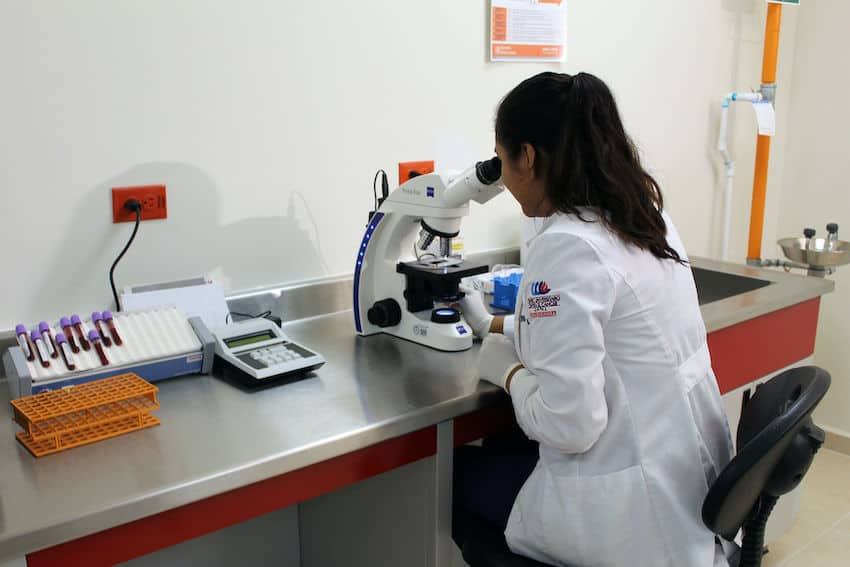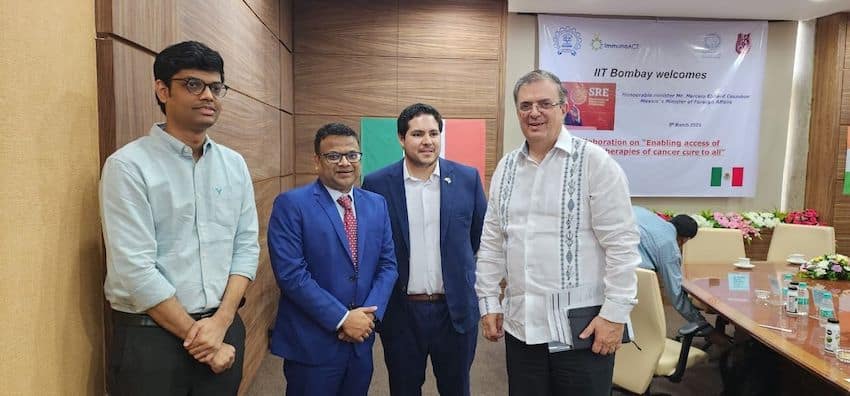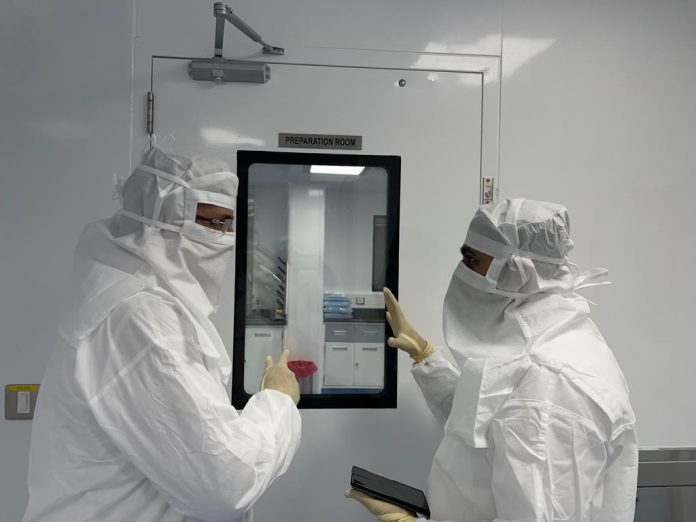An innovative cancer treatment known as CAR-T cell therapy will be trialed in Mexico this year, Foreign Minister Marcelo Ebrard confirmed on Monday.
Mexico will acquire the technology from Indian laboratory ImmunoACT as part of an agreement between the company, the National Polytechnic Institute and the Salvador Zubirán National Institute of Medical Sciences and Nutrition, signed last November.

CAR-T cell therapy – which refers to “weaponized” T-cells with chimeric antigen receptors – uses genetically modified immune cells from cancer patients to target and destroy malignant cancer cells. The therapy is used to treat blood cancers such as leukemia and lymphoma and is often a “last resort” therapy in children and adults who have not responded to other treatments.
“We will be able to save thousands of lives of people with leukemia, whose lives we cannot save now,” explained Ebrard.
Ebrard made the comments while leading a visit of Mexican scientists and diplomats to ImmunoACT’s laboratories in Mumbai.
“We are extremely excited to work with the Mexican team and the Mexican delegation,” said ImmunoACT director Shirish Arya. “The socioeconomic structures and the technological challenges both in India and in Mexico are very similar in many ways, so I’m sure that whatever learnings we have in India, some of it we can transport to Mexico.”

The Foreign Ministry (SRE) said in a statement that clinical trials of CAR-T cell therapies would start in Mexico this year, with funding from the Mexican Agency for International Development Cooperation.
The trials will take place at the Dr José Eleuterio González Hospital, at the Autonomous University of Nuevo León (UANL). These will test the safety of the therapy in Mexican patients with lymphoblastic leukemia.
The process involves drawing blood from the patient, from which immune cells known as T-cells are extracted. The “Gen CAR” vector is then injected into the cells, which are allowed to reproduce in the laboratory before being transfused back into the patient to attack the cancer.
“If the clinical phases are successful, UANL will be the first public institution in the country to have this advanced therapeutic alternative,” Mexico’s health regulatory agency (Cofepris) said in a statement in February, on approving the CAR-T vector import permit.
Clinical trials in other countries suggest that CAR-T cell therapies are safe and effective. In a November 2020 trial, 60% of 146 participants with Indolent Non-Hodgkin Lymphoma achieved complete remission after the CAR-T cell treatment.
The therapies have been approved by regulatory agencies in the United States, Canada, and several countries in Europe, as far back as 2017. They have also recently come into use in Australia, New Zealand, China, Singapore and Japan.
However, their high cost has been a barrier to their adoption in middle and lower-income countries. The treatment can cost around US $500,000 per patient, according to Ebrard.
“We are going to make it accessible to the people, that is, we can have it in the public system and Mexicans can access that technology,” he said.
With reports from La Jornada and El Financiero
